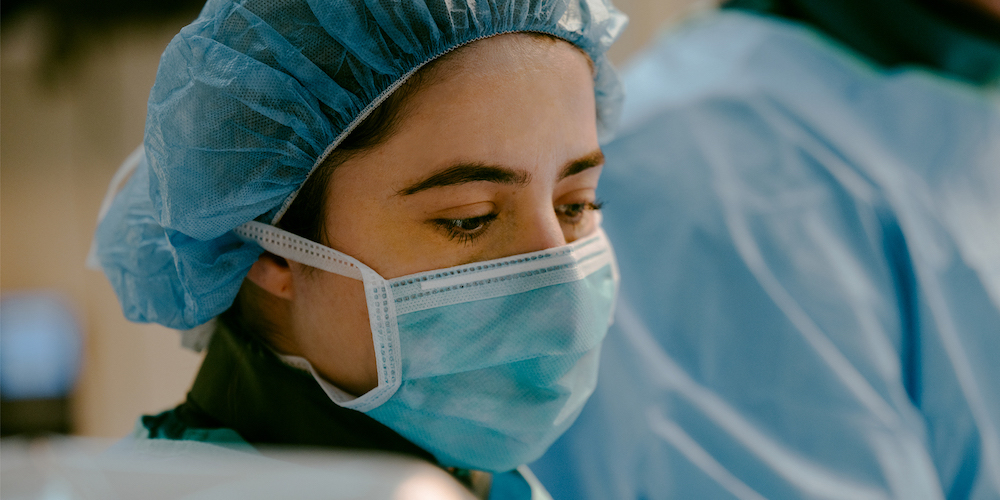Congenital Heart Disease
If you’re an adult with a congenital heart defect, you don’t have to leave your community for specialized care. Experts at St. Peter’s Health Partners offer more of the services you need to stay healthy. From ongoing monitoring to surgery to treat new issues, you can count on us for expertise and personalized care.
What is Adult Congenital Heart Disease?
Adult congenital heart disease (ACHD) includes problems with heart structure and function that are present at birth. Receiving treatment during childhood relieves symptoms and lowers the likelihood of complications. But, it does not cure the disease.
You are still at risk for long-term effects of congenital heart disease, such as arrhythmias. You also face a higher risk of heart issues like coronary artery disease that occur with age. The best way to preserve your heart health is by seeing experienced specialists, such as the ones at St. Peter’s Health Partners.
Why Choose St. Peter’s Health Partners for Your ACHD Care?
St. Peter’s Health Partners is among the Capital Region’s few programs with experts in structural heart disease. Our offerings reflect the latest science in preventing, detecting, and treating ACHD complications. You have access to sophisticated tests as well as nonsurgical and surgical treatments if you need them.
Highlights of Our Program Include:
- Personalized Care: We recognize that seeing an adult heart specialist can bring back childhood memories of CHD treatment, some of which may be unpleasant. Our specialists take time to get to know you and listen to your concerns. We recommend treatments based on your medical history and current heart health needs.
- Convenient Testing: We offer a broad range of cardiac imaging tests to assess your heart health. The tests that are right for you depend on your health history and whether you are experiencing symptoms. Many options, including echocardiograms, are available in our offices, so you get more out of each visit.
- Education: Even if you do not remember your diagnosis or treatment history, we can help you. We explain what’s happening to your heart and how we can help you avoid complications.
- Same-Day Heart Care: If there is a sudden change in symptoms, or new ones, you won’t need to wait long to get answers. Our same-day heart clinic is open weekdays with no appointment necessary. The clinic is for patients with non-life-threatening symptoms, such as heart palpitations or chest discomfort. You can see a structural heart disease specialist and receive testing the same day. Find out about our walk-in clinics.
ACHD Complications We Prevent and Treat
Care for congenital heart disease in adults focuses on preventing and treating complications, such as:
- Abnormal Heart Rhythms (Arrhythmias) - Arrhythmias may develop when defects or scarring from a previous surgery interfere with electrical activity in the heart. These issues sometimes occur decades after heart defect treatment. Our team includes trusted arrhythmia experts (electrophysiologists) who offer advanced testing and treatments. Learn more about care for Afib and other arrhythmias.
- Coronary Artery Disease - Adults with congenital heart disease are more likely to experience coronary artery disease than an adult without heart defects. This condition occurs when fatty deposits (plaque) build up in blood vessel walls. The buildups can affect blood flow, increasing your risk of life-threatening complications, like a heart attack.
- Heart Failure - Heart failure occurs when the heart can no longer keep up with the body’s needs. Adults with severe congenital defects face a higher risk of this condition. The type of heart failure and symptoms you experience are different than in people who do not have heart defects. As an experienced heart failure program, we detect early symptoms so you can receive timely care.
- Heart Valve Disease - Congenital heart defects often affect valve function. Valves might not be the right shape, or may not snap open and shut as they should. Procedures during childhood to fix defects can help you live symptom-free for a long time. But, if valve disease symptoms return, such as unusual tiredness, you may need an additional procedure.
- High-Risk Pregnancy - Congenital heart disease can make it challenging for your cardiovascular system to adapt to the additional demands of pregnancy. With the proper care, most women with ACHD have healthy pregnancies and babies. The congenital heart disease experts at St. Peter’s Health Partners work closely with obstetrics and gynecology specialists whenever necessary.
- Pulmonary Hypertension - Pulmonary hypertension occurs when there is high blood pressure in the pulmonary artery. This blood vessel delivers oxygen-poor blood from the heart to the lungs. Pulmonary hypertension is rare, but adults with congenital heart disease are more likely to experience it.

